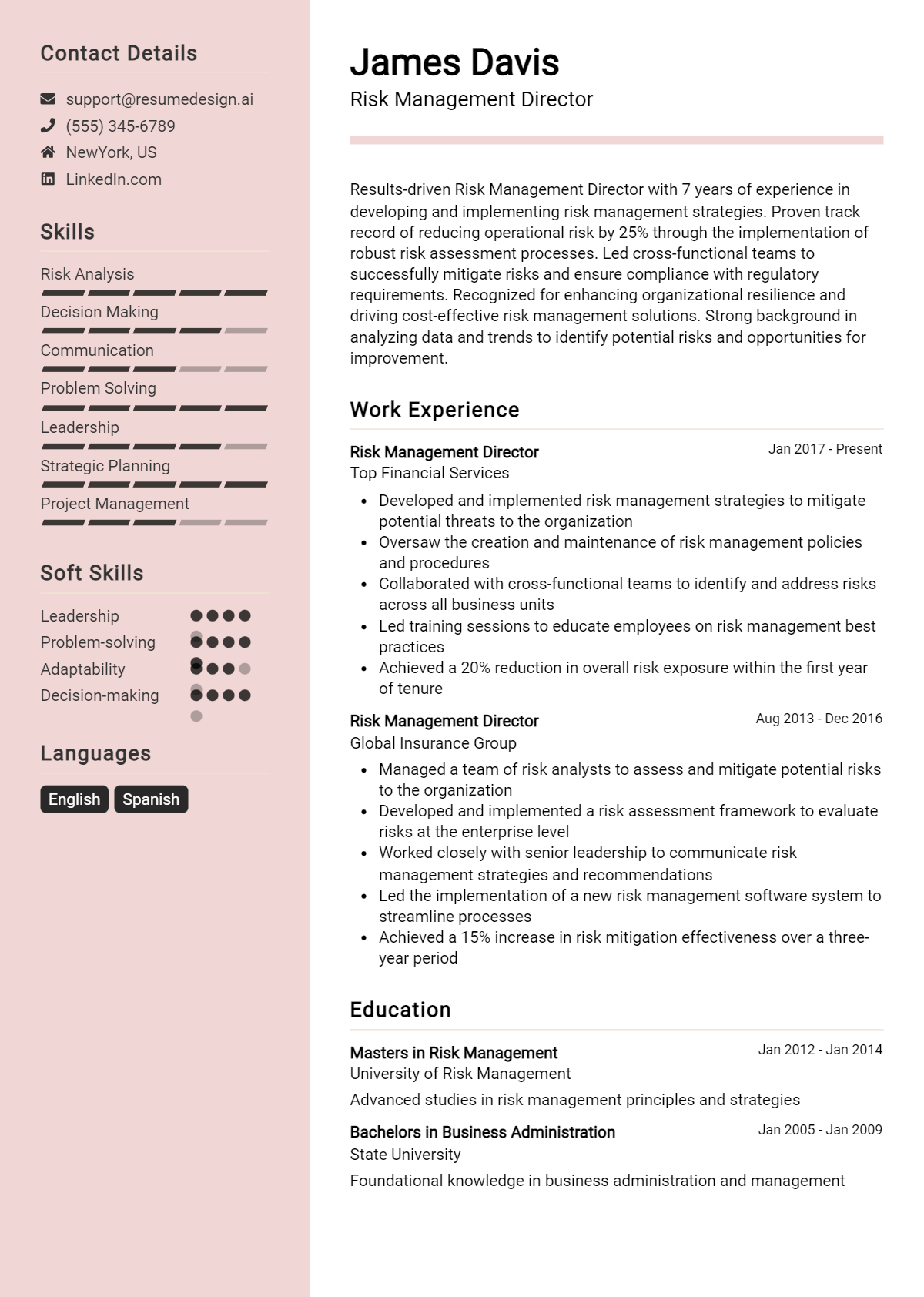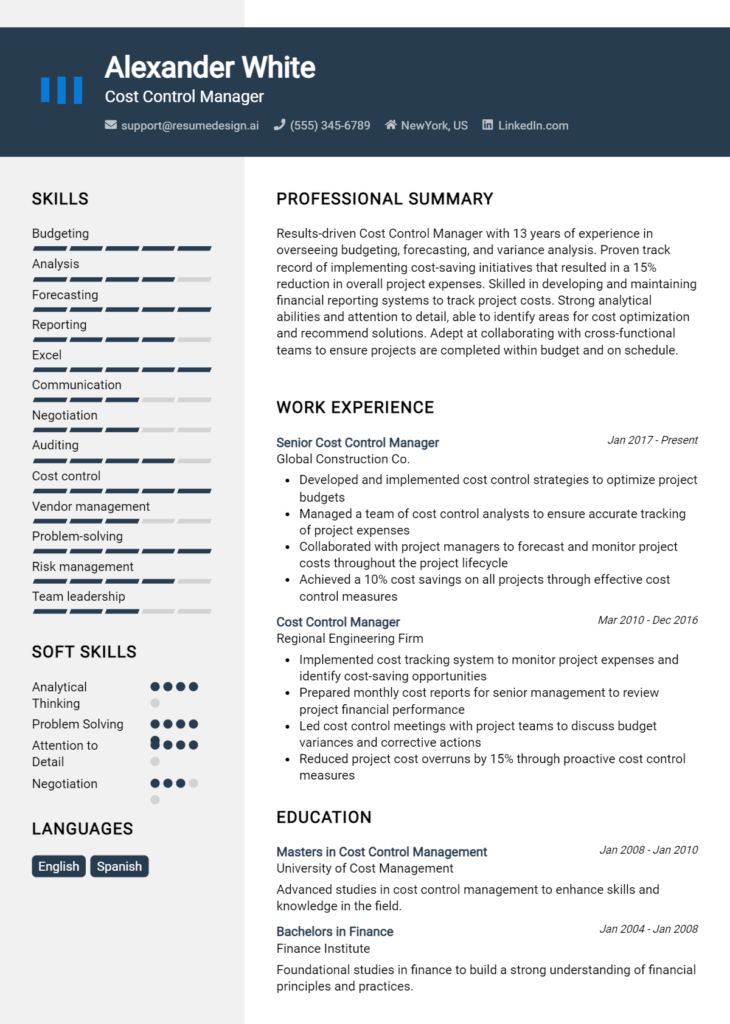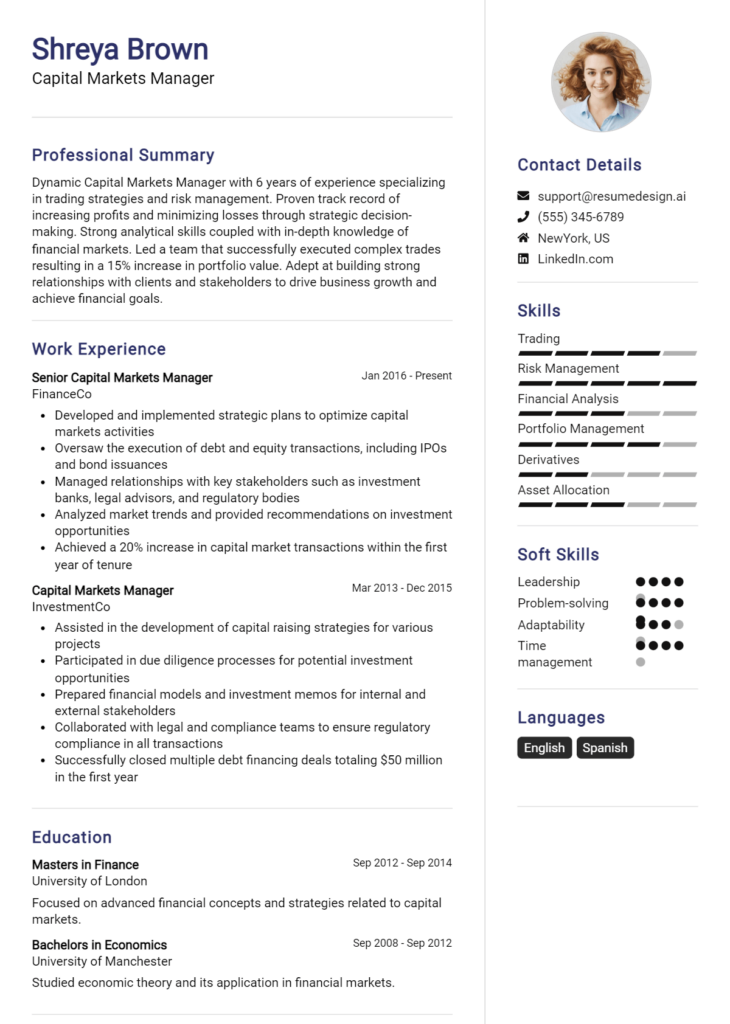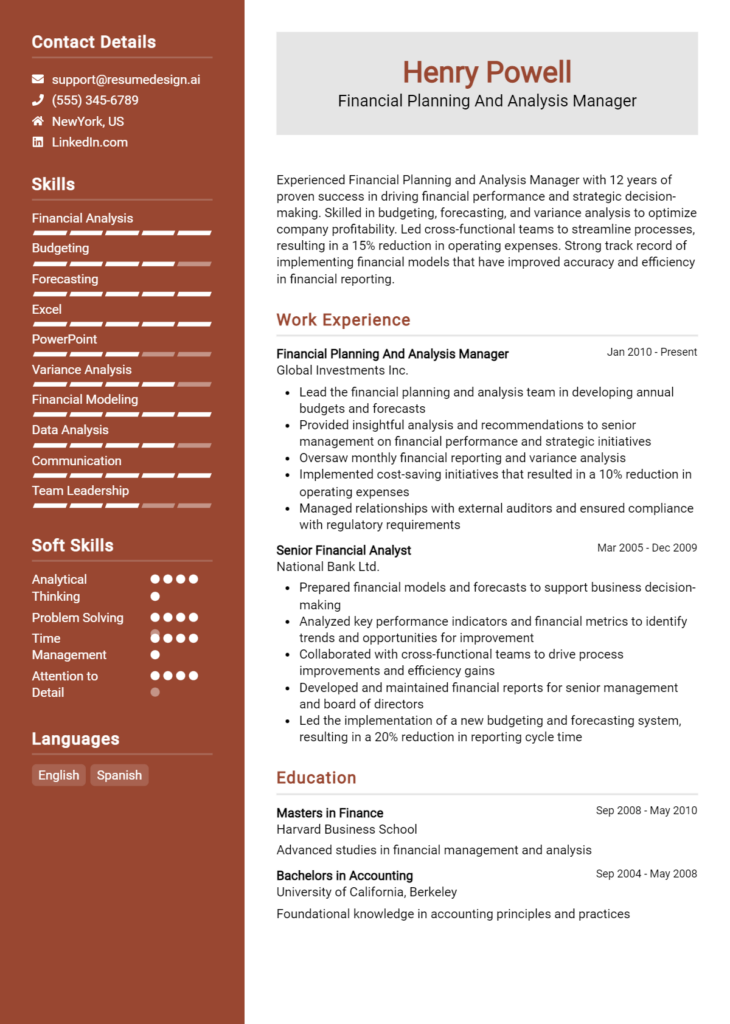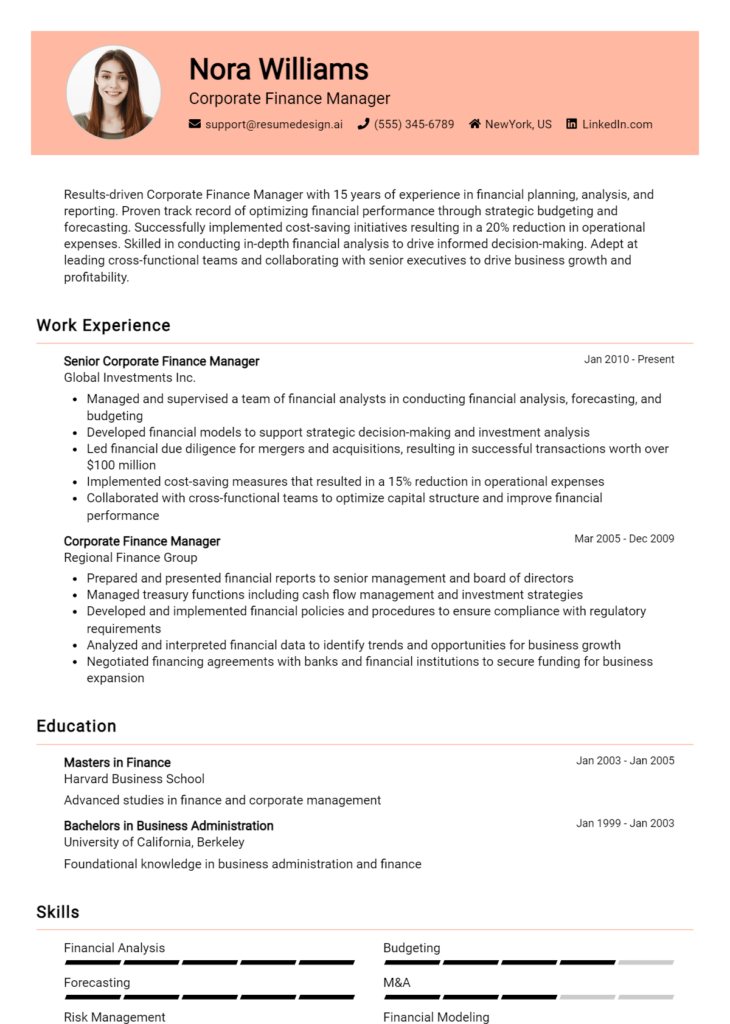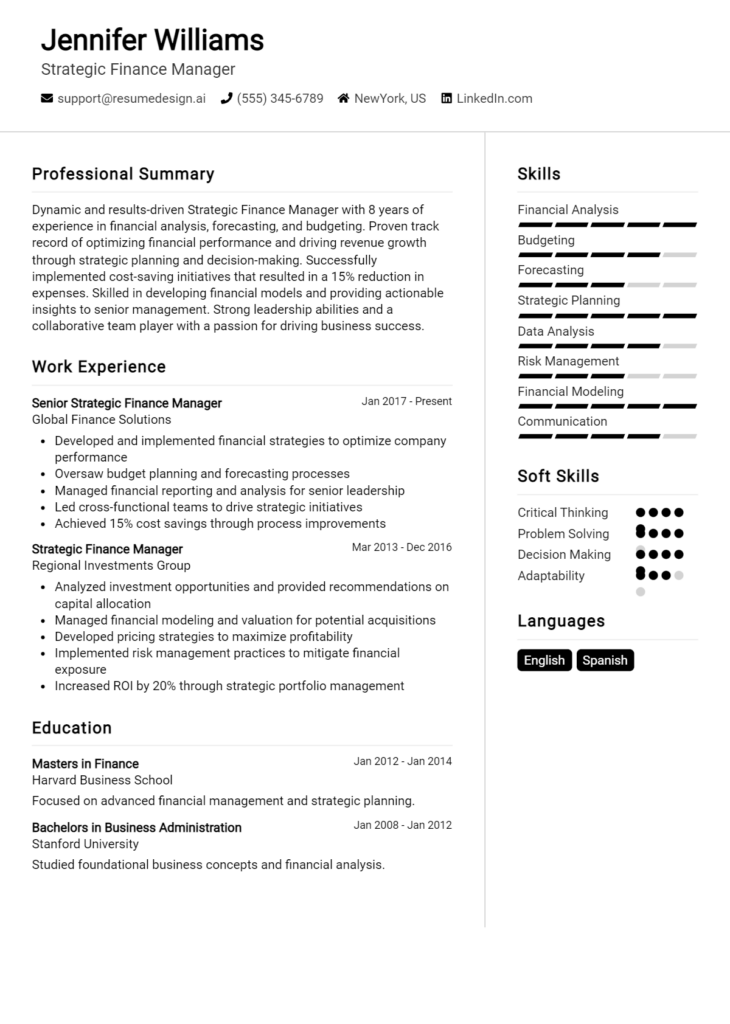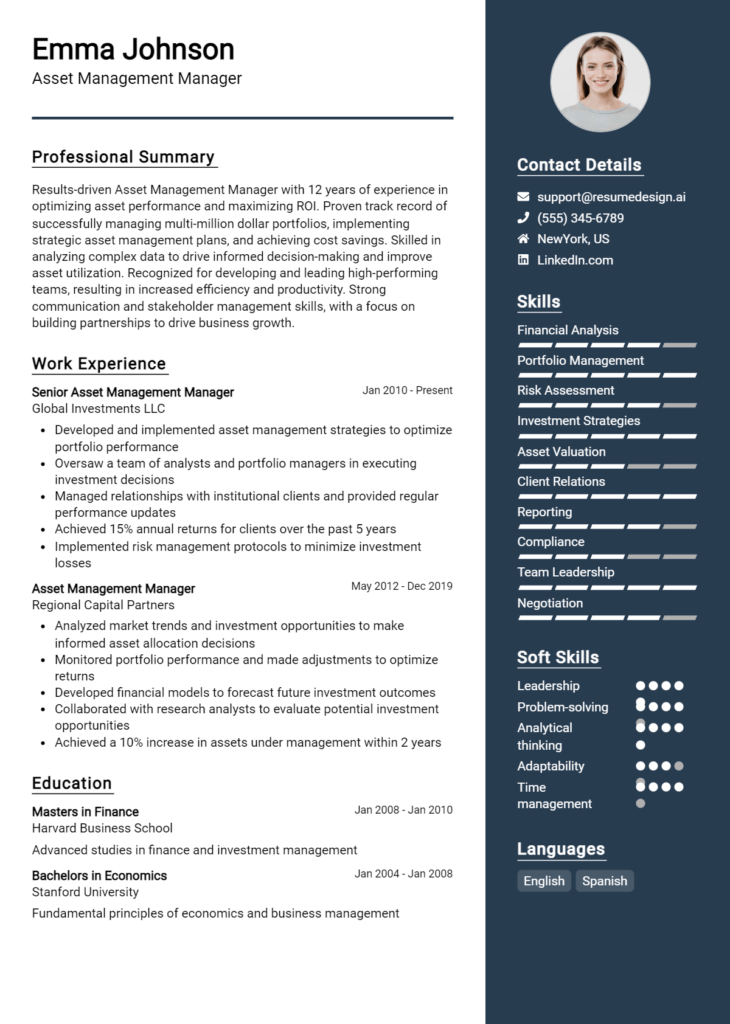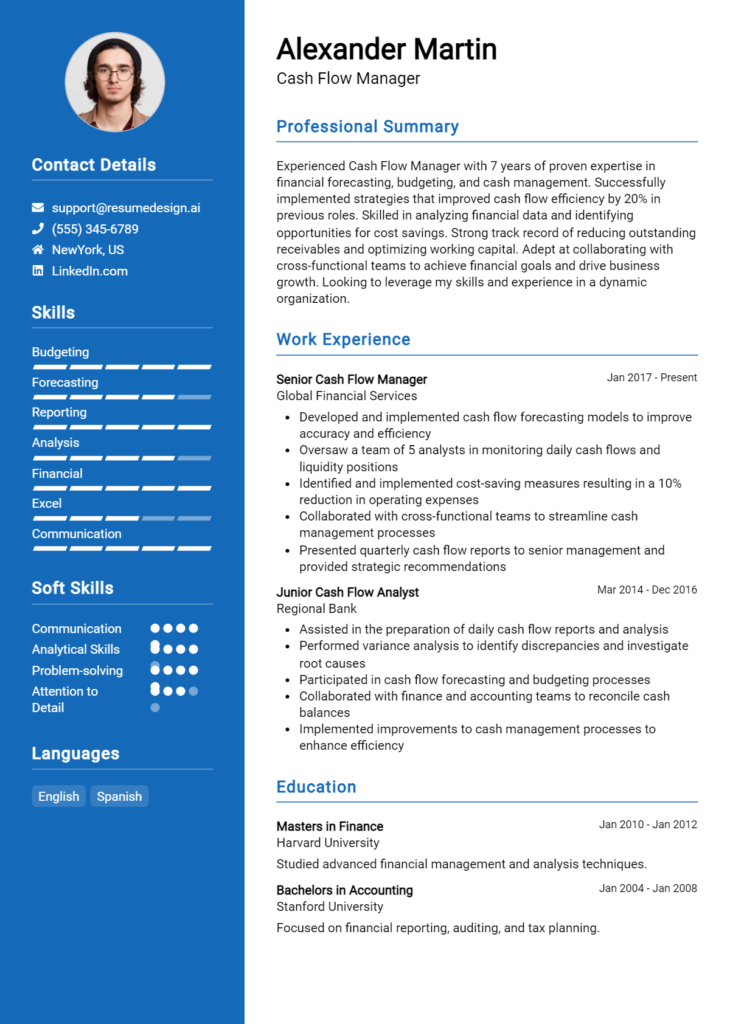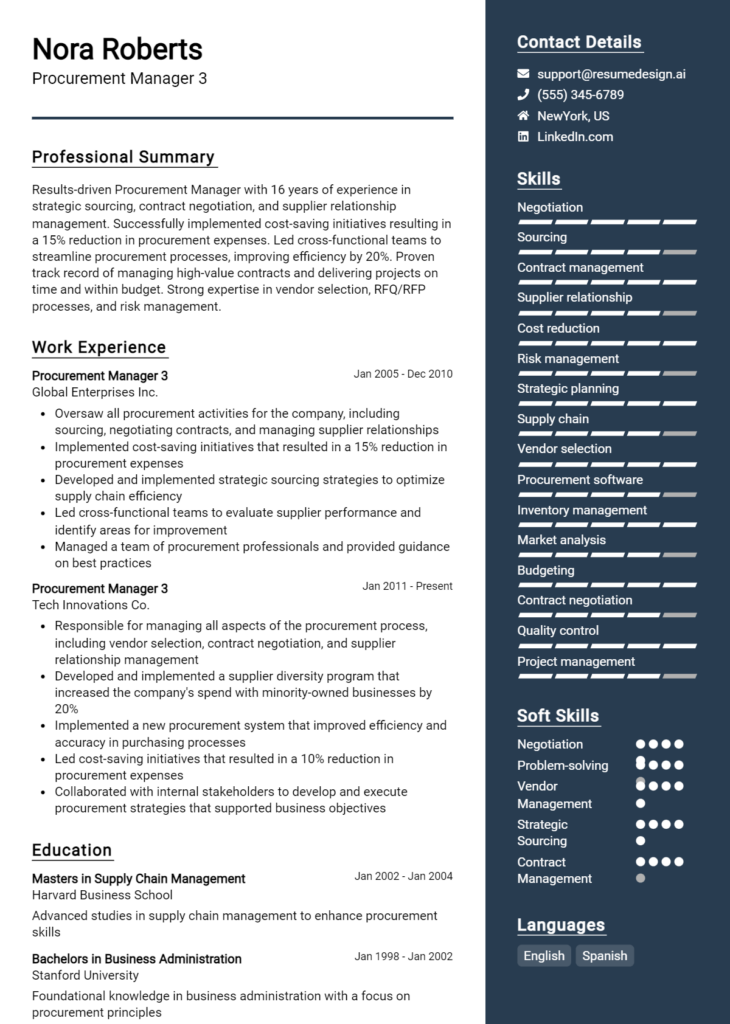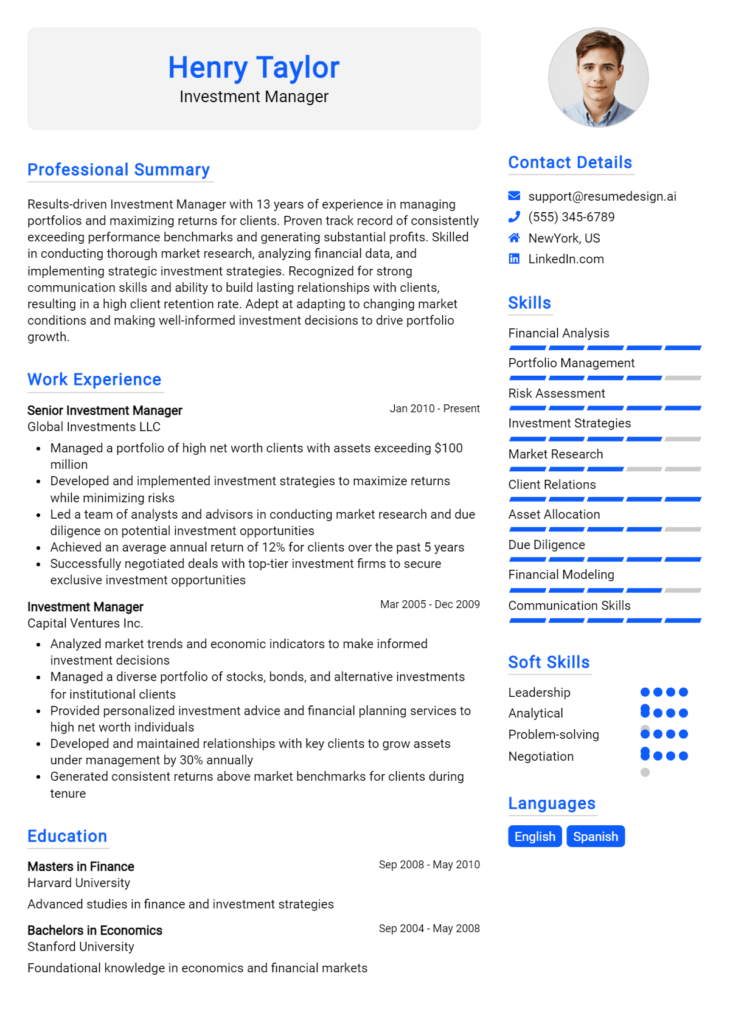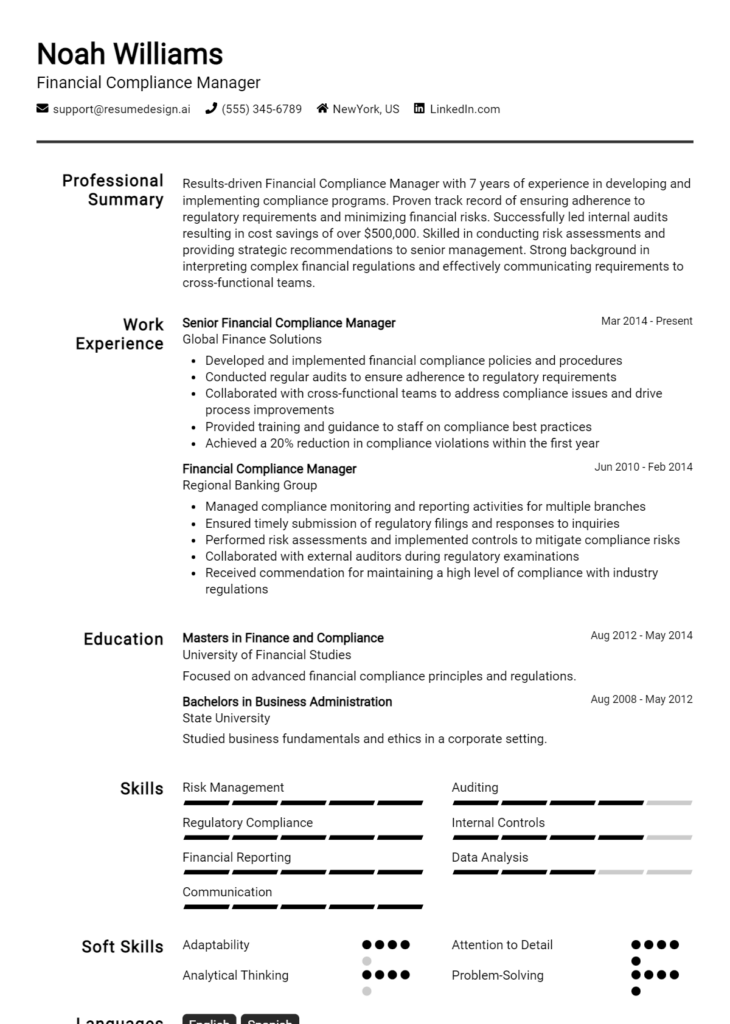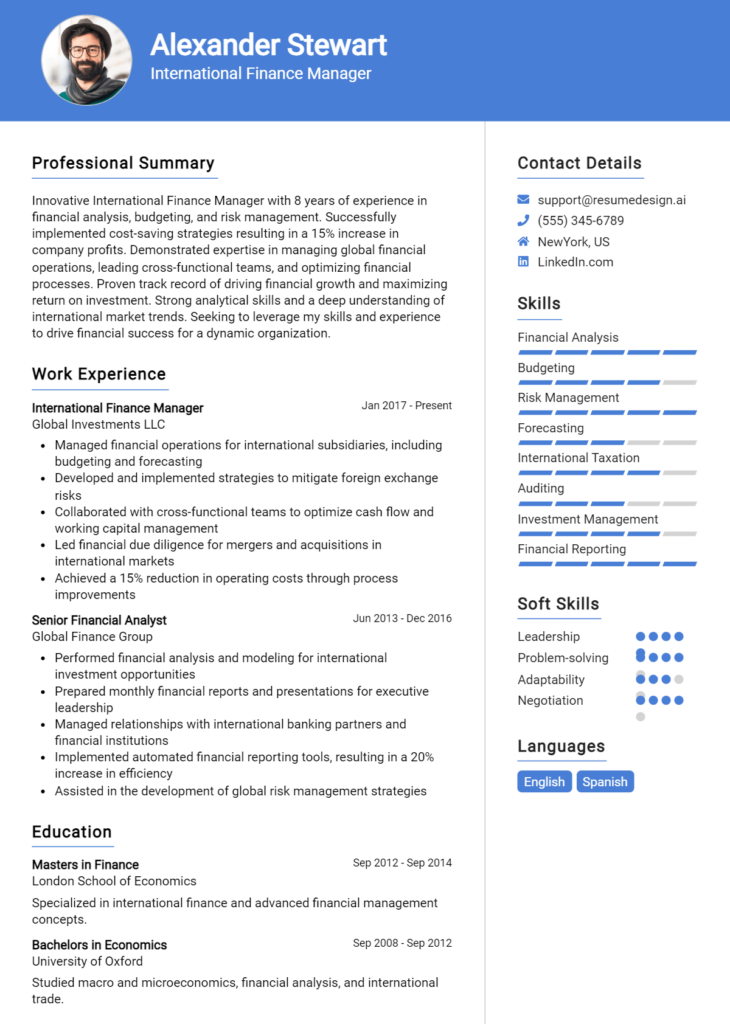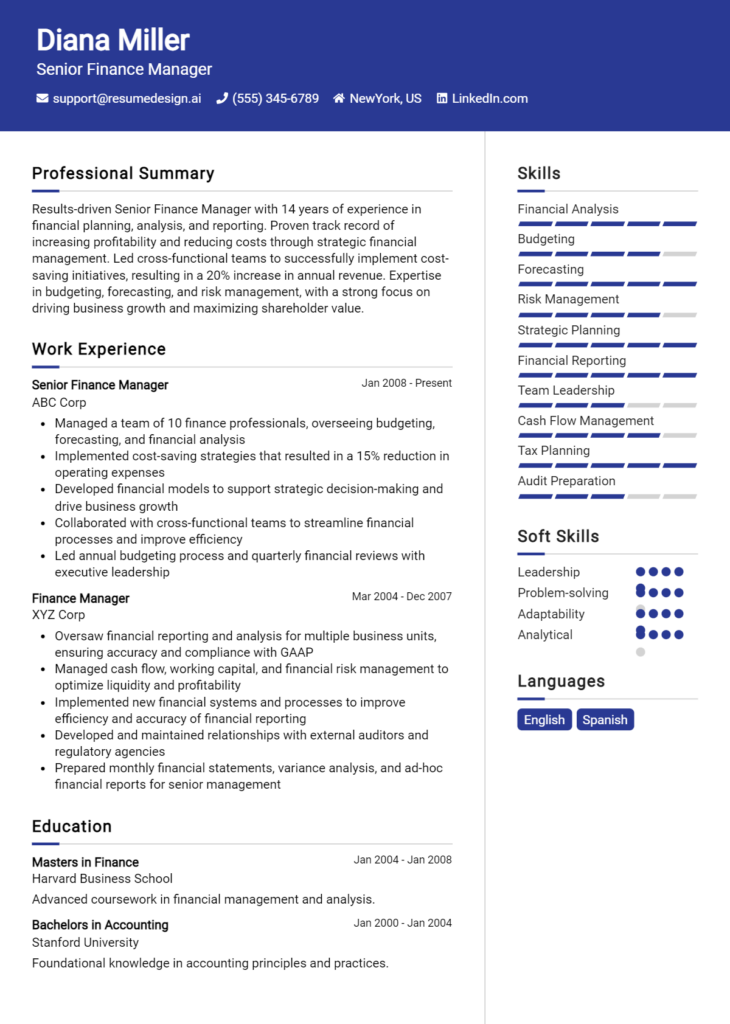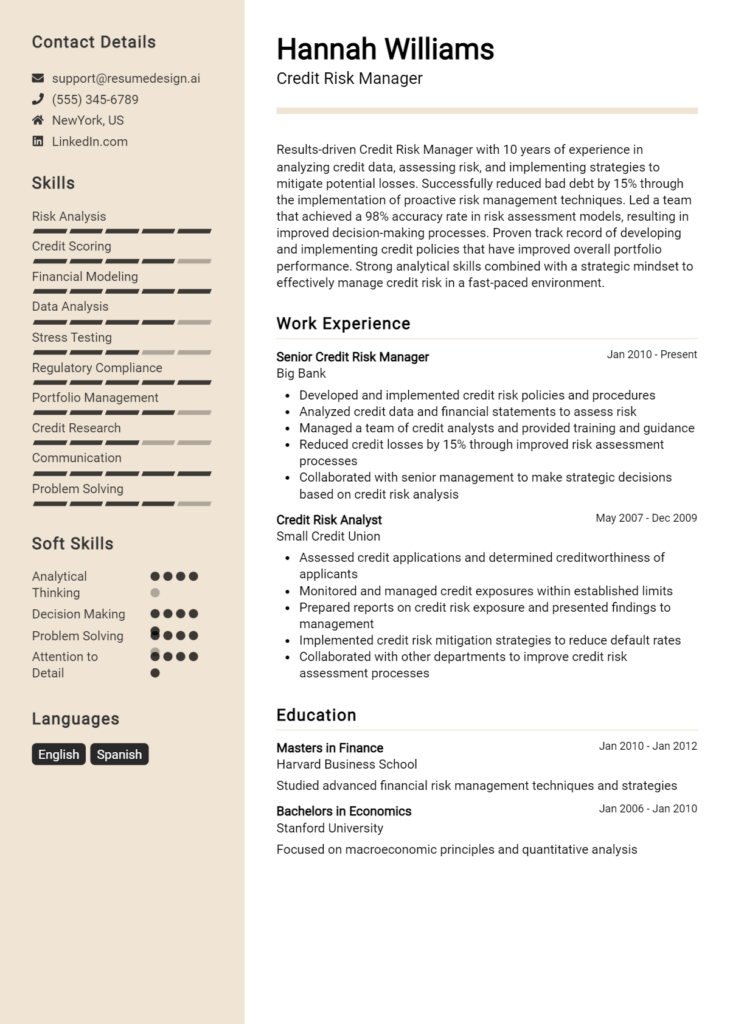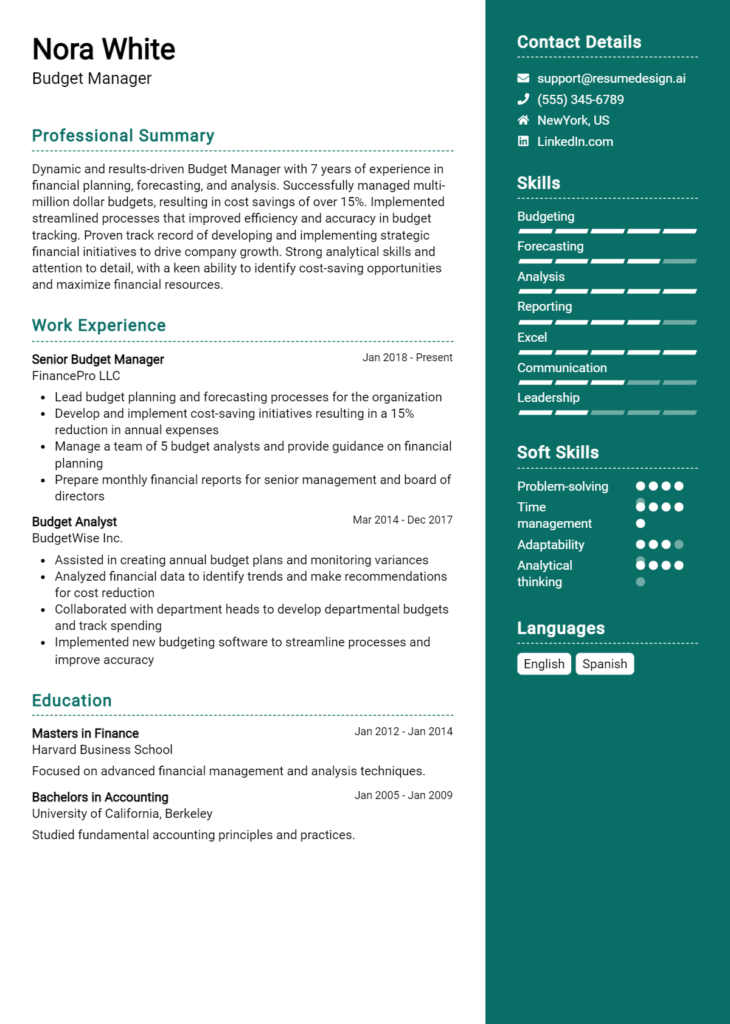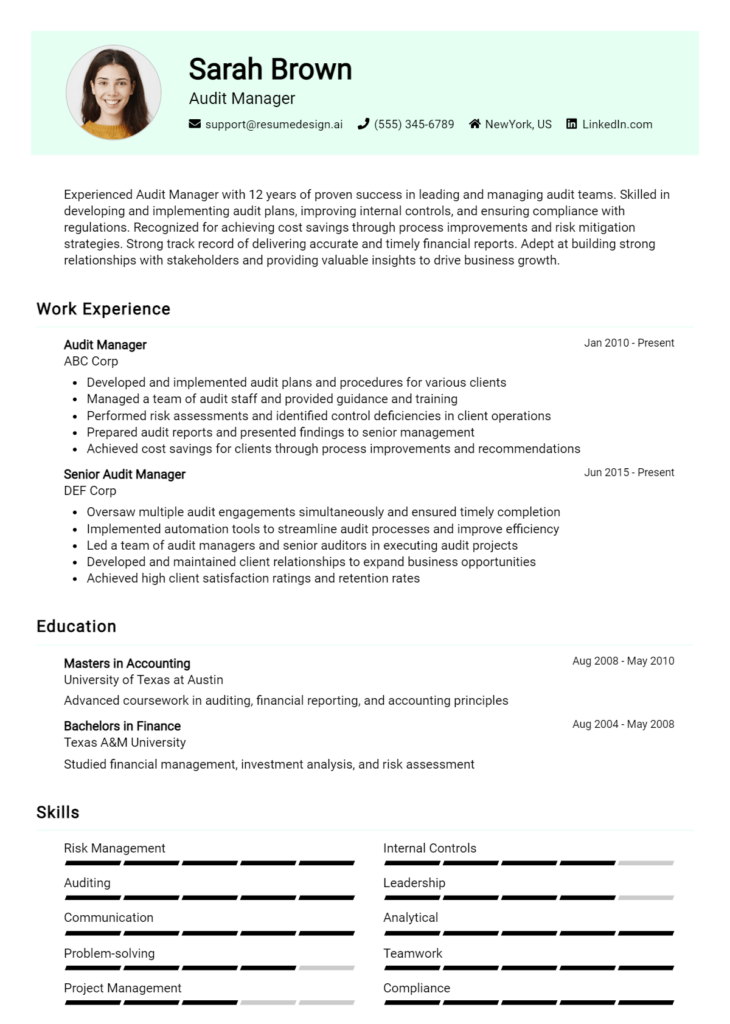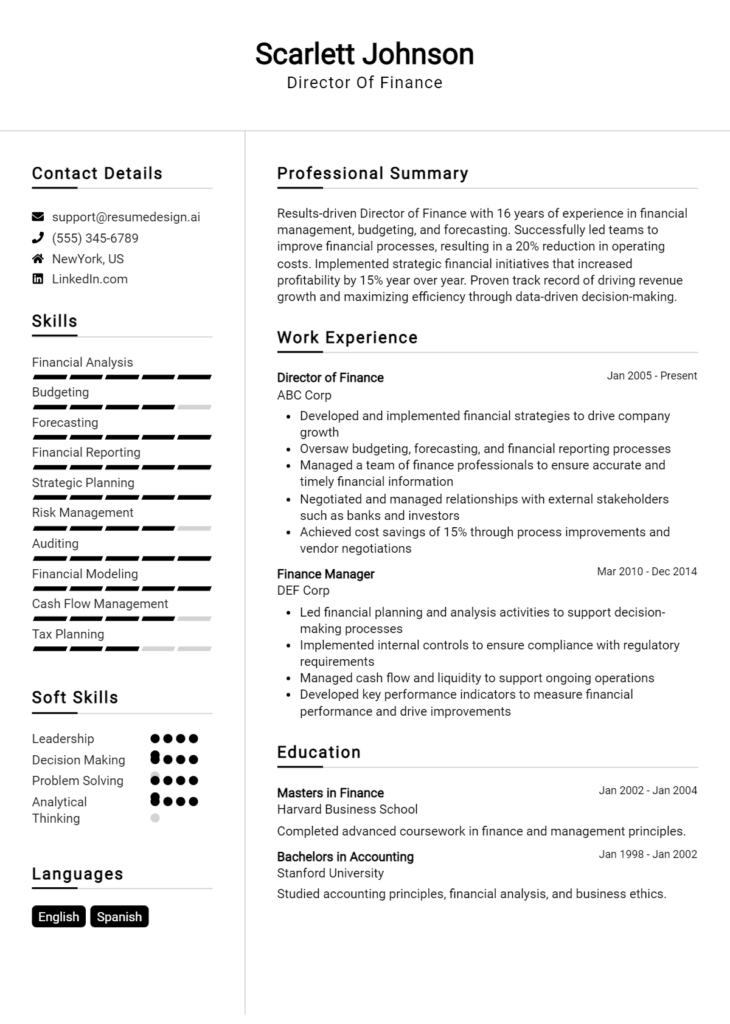Risk Management Director Core Responsibilities
The Risk Management Director plays a crucial role in safeguarding an organization's assets by identifying, assessing, and mitigating risks across various functions. This professional collaborates with departments such as finance, operations, and compliance, ensuring cohesive risk strategies are implemented. To excel, a Risk Management Director must possess strong technical, operational, and problem-solving skills, enabling them to anticipate challenges and make informed decisions. Highlighting these competencies in a well-structured resume is vital for demonstrating how they contribute to the organization's overall objectives.
Common Responsibilities Listed on Risk Management Director Resume
- Develop and implement comprehensive risk management strategies.
- Conduct risk assessments and analysis across various business sectors.
- Collaborate with department heads to integrate risk management practices.
- Monitor and report on risk management performance metrics.
- Ensure compliance with regulatory requirements and industry standards.
- Lead crisis management and business continuity planning initiatives.
- Educate staff on risk management policies and procedures.
- Oversee insurance coverage and claims management.
- Facilitate risk management workshops and training sessions.
- Analyze emerging risks and recommend mitigation strategies.
- Provide strategic recommendations to senior management.
- Collaborate with external stakeholders on risk-related issues.
High-Level Resume Tips for Risk Management Director Professionals
In today's competitive job market, a well-crafted resume serves as a critical tool for Risk Management Director professionals seeking to make their mark. As the first impression a candidate makes on a potential employer, the resume must effectively reflect both the candidate's unique skills and their notable achievements in the field. Given the complexities of risk management, it is essential that the resume communicates not only technical expertise but also a strategic mindset and leadership capabilities. This guide will provide practical and actionable resume tips specifically tailored for Risk Management Director professionals, helping you stand out in a crowded field.
Top Resume Tips for Risk Management Director Professionals
- Tailor your resume to the job description by incorporating relevant keywords and phrases that reflect the specific requirements of the position.
- Highlight your relevant experience in risk assessment, mitigation strategies, and compliance management to showcase your expertise in the field.
- Quantify your achievements by including metrics and data, such as reducing risks by a certain percentage or managing budgets of specified amounts.
- Emphasize your leadership skills by outlining your roles in team management, cross-departmental collaboration, and project oversight.
- Include industry-specific certifications and training that demonstrate your commitment to professional development and adherence to best practices in risk management.
- Utilize a clear and professional format that allows for easy readability, ensuring that key information stands out to hiring managers.
- Incorporate a strong summary statement at the top of your resume that encapsulates your core competencies and career highlights.
- Showcase your problem-solving abilities by providing examples of complex risk scenarios you have navigated successfully.
- Maintain a focus on continuous improvement by mentioning any initiatives you have led that resulted in enhanced risk management processes.
By implementing these tips, Risk Management Director professionals can significantly enhance their resumes, thereby increasing their chances of landing a coveted position in this dynamic field. A well-structured and thoughtful resume not only showcases your qualifications but also reflects your professional journey and commitment to excellence in risk management.
Why Resume Headlines & Titles are Important for Risk Management Director
In the competitive landscape of risk management, the role of a Risk Management Director is both critical and complex. A well-crafted resume headline or title serves as a powerful first impression, capturing the essence of a candidate's qualifications and expertise in just a few words. Hiring managers often sift through numerous applications, and a strong headline can immediately grab their attention, succinctly highlighting the candidate's most relevant skills and experiences. This crucial element should be concise, relevant, and tailored specifically to the role being applied for, acting as a beacon that guides the reader toward the candidate's potential fit for the position.
Best Practices for Crafting Resume Headlines for Risk Management Director
- Keep it concise: Aim for a headline that is brief yet informative.
- Be role-specific: Use terminology and keywords specific to risk management.
- Highlight key qualifications: Include your most significant strengths or achievements.
- Use action-oriented language: Employ strong verbs to convey your impact and capabilities.
- Tailor for the position: Customize your headline for each job application to reflect the job description.
- Incorporate metrics: If applicable, include quantifiable achievements to add credibility.
- Avoid jargon: Use clear language that is easily understood by hiring managers.
- Make it relevant: Ensure that the headline aligns closely with the requirements of the job.
Example Resume Headlines for Risk Management Director
Strong Resume Headlines
Dynamic Risk Management Director with 15+ Years of Experience in Financial Services and Regulatory Compliance
Results-Driven Leader Specializing in Enterprise Risk Assessment and Strategic Risk Mitigation
Innovative Risk Management Director with Proven Track Record in Reducing Operational Risks by 30%
Weak Resume Headlines
Risk Management Professional
Experienced in Risk Management
Strong headlines are effective because they immediately convey a candidate's value proposition, showcasing their experience, skills, and achievements relevant to the role of Risk Management Director. They are specific and impactful, designed to resonate with hiring managers and draw them into the resume. On the other hand, weak headlines fail to impress because they lack detail and specificity, making it difficult for employers to gauge the candidate's qualifications or understand what sets them apart from others. A generic title does not provide any compelling reason for a hiring manager to continue reading, ultimately diminishing the candidate's chances of standing out in a crowded job market.
Writing an Exceptional Risk Management Director Resume Summary
In the competitive landscape of risk management, a well-crafted resume summary is essential for a Risk Management Director. This introductory paragraph serves as a powerful tool that quickly captures the attention of hiring managers by succinctly showcasing a candidate's key skills, relevant experience, and significant accomplishments. A strong summary not only highlights what sets the candidate apart but also establishes a clear alignment with the specific requirements of the job role. It should be concise, impactful, and tailored to resonate with the needs of the organization, ultimately setting the stage for a deeper review of the candidate's qualifications.
Best Practices for Writing a Risk Management Director Resume Summary
- Quantify Achievements: Use numbers and metrics to demonstrate the impact of your work.
- Focus on Skills: Highlight skills that are directly relevant to the risk management field, such as analytical skills, regulatory compliance, and crisis management.
- Tailor for the Job Description: Customize your summary to reflect the specific requirements and language used in the job posting.
- Showcase Leadership Experience: Emphasize your ability to lead teams and manage projects effectively.
- Be Concise: Aim for 3-5 sentences that encapsulate your professional identity and key contributions.
- Incorporate Industry Knowledge: Mention familiarity with industry standards and regulations to illustrate expertise.
- Use Action Verbs: Start with strong action verbs to convey confidence and proactivity.
- Maintain Professional Tone: Keep the language formal and professional, suitable for high-level positions.
Example Risk Management Director Resume Summaries
Strong Resume Summaries
Dynamic Risk Management Director with over 10 years of experience in developing and implementing risk frameworks that reduced operational losses by 30%. Proven ability to lead cross-functional teams in identifying risks and driving compliance initiatives that align with corporate strategy.
Results-driven Risk Management professional with a track record of enhancing risk assessment processes, resulting in a 25% increase in efficiency. Specialized in regulatory compliance and crisis management, with extensive experience in mitigating financial and reputational risks across various sectors.
Accomplished Risk Management Director recognized for spearheading enterprise-wide risk management programs that improved risk mitigation strategies by 40%. Adept at leveraging data analytics to guide decision-making and ensure alignment with industry best practices.
Weak Resume Summaries
Experienced in risk management with a focus on various strategies. I have worked in different roles and understand the importance of compliance.
Risk Management Director with a background in managing risks. I have some experience in leading teams and working with compliance issues.
The strong resume summaries are considered effective due to their specificity, quantifiable achievements, and direct relevance to the Risk Management Director role. They provide concrete examples of the candidate's impact and skills, making them stand out to hiring managers. Conversely, the weak summaries lack detail and measurable outcomes, making them too generic and less compelling in showcasing the candidate's qualifications for the position.
Work Experience Section for Risk Management Director Resume
The work experience section of a Risk Management Director resume is crucial, as it serves as a comprehensive demonstration of the candidate’s professional journey, technical skills, and leadership capabilities. This section not only highlights the candidate's ability to manage teams effectively but also showcases their aptitude for delivering high-quality risk management solutions. By quantifying achievements and aligning their experiences with industry standards, candidates can effectively illustrate their impact in previous roles, making a compelling case for their expertise and suitability for the position.
Best Practices for Risk Management Director Work Experience
- Use action verbs to describe your responsibilities and achievements.
- Quantify results with metrics, such as percentage improvements or cost savings.
- Highlight technical skills relevant to risk management, including software and methodologies.
- Showcase leadership experiences, particularly in team management and project oversight.
- Provide context for your achievements by indicating the challenges faced and solutions implemented.
- Align your experiences with industry standards and best practices for risk management.
- Include collaboration efforts with cross-functional teams and stakeholders.
- Tailor the experiences to match the specific requirements of the job description.
Example Work Experiences for Risk Management Director
Strong Experiences
- Developed and implemented a risk assessment framework that reduced operational risks by 30%, leading to a savings of $2 million annually.
- Led a cross-functional team of 15 in the successful execution of a comprehensive risk management strategy, resulting in a 25% increase in compliance with regulatory standards.
- Utilized advanced analytics tools to identify risk trends, which improved risk mitigation strategies and decreased incident reports by 40% over two years.
- Collaborated with senior leadership to align risk management initiatives with corporate goals, enhancing stakeholder confidence and resulting in a 15% boost in investment opportunities.
Weak Experiences
- Managed various risk-related tasks without specifying outcomes or improvements.
- Worked with teams to address risks in a general capacity without detailing specific contributions or achievements.
- Participated in meetings discussing risk management strategies but did not mention any follow-up actions or results.
- Assisted in the development of risk protocols; however, no quantifiable results or metrics were provided.
The examples of strong experiences are considered effective because they provide clear, quantifiable outcomes that illustrate the candidate's impact on the organization. They highlight specific achievements, technical leadership, and collaborative efforts that align with the role's responsibilities. In contrast, the weak experiences lack detail and measurable results, making them less compelling and failing to demonstrate the candidate's true capabilities in risk management.
Education and Certifications Section for Risk Management Director Resume
The education and certifications section of a Risk Management Director resume is crucial as it serves to illustrate the candidate's academic background, industry-specific qualifications, and commitment to ongoing professional development. This section not only validates the candidate's expertise but also showcases the relevant coursework, certifications, and specialized training that align with the demands of the role. By providing this information, candidates can enhance their credibility and demonstrate their preparedness to navigate the complexities of risk management in various organizational contexts.
Best Practices for Risk Management Director Education and Certifications
- Include degrees relevant to risk management, finance, business administration, or related fields.
- Highlight industry-recognized certifications such as Certified Risk Manager (CRM), Certified Risk Management Professional (CRMP), or Associate in Risk Management (ARM).
- Detail relevant coursework that emphasizes skills in risk assessment, compliance, and strategic planning.
- List any specialized training or workshops attended that focus on emerging trends in risk management.
- Ensure that all educational credentials are current and reflect your most recent accomplishments.
- Consider including online courses or certifications from reputable institutions that demonstrate continuous learning.
- Use clear formatting to differentiate between degrees, certifications, and training for easy readability.
- Tailor the section to the specific requirements of the job description to align your qualifications with the employer's needs.
Example Education and Certifications for Risk Management Director
Strong Examples
- MBA in Risk Management from Harvard Business School
- Certified Risk Manager (CRM) - Risk and Insurance Management Society
- Certificate in Enterprise Risk Management from the University of Chicago
- Relevant coursework: Advanced Risk Assessment Techniques, Corporate Governance, and Compliance Management
Weak Examples
- Bachelor’s Degree in English Literature
- Certification in Basic First Aid
- Old certification in Risk Management from an unaccredited institution
- Coursework unrelated to risk management, such as Art History
The strong examples are considered relevant and impactful as they directly align with the qualifications and skills required for a Risk Management Director role, showcasing advanced degrees and recognized industry certifications. In contrast, the weak examples reflect qualifications that do not pertain to risk management, either due to irrelevance or lack of credibility, thereby failing to strengthen the candidate's profile in a competitive job market.
Top Skills & Keywords for Risk Management Director Resume
In today's fast-paced business environment, the role of a Risk Management Director is critical to ensuring that organizations navigate potential threats effectively. A well-crafted resume that highlights the right skills can set candidates apart in a competitive job market. The skills listed not only demonstrate a candidate's technical proficiency but also their ability to lead teams, make strategic decisions, and foster a culture of risk awareness within the organization. By showcasing both hard and soft skills, job seekers can present a comprehensive profile that aligns with the expectations of hiring managers.
Top Hard & Soft Skills for Risk Management Director
Soft Skills
- Leadership
- Strategic Thinking
- Communication
- Problem-Solving
- Analytical Mindset
- Interpersonal Skills
- Adaptability
- Decision-Making
- Conflict Resolution
- Emotional Intelligence
- Negotiation
- Team Collaboration
- Time Management
- Critical Thinking
- Creativity
- Resilience
- Project Management
Hard Skills
- Risk Assessment and Analysis
- Regulatory Compliance
- Financial Acumen
- Data Analysis
- Risk Mitigation Strategies
- Business Continuity Planning
- Insurance and Liability Management
- Cybersecurity Knowledge
- Crisis Management
- Quantitative Risk Modeling
- Audit and Control Procedures
- Statistical Analysis
- Industry-Specific Risk Management Tools
- Report Generation and Documentation
- Enterprise Risk Management (ERM)
- Performance Metrics Development
- Technology Proficiency (e.g., risk management software)
By integrating these essential skills into a resume, candidates can effectively communicate their qualifications and readiness for the challenges that come with the role of a Risk Management Director. Moreover, relevant work experience that reflects these skills further enhances a candidate's attractiveness to potential employers.
Stand Out with a Winning Risk Management Director Cover Letter
Dear Hiring Manager,
I am writing to express my interest in the Risk Management Director position at [Company Name]. With over [X years] of experience in risk assessment, mitigation strategies, and compliance management, I have honed my ability to identify potential risks while developing comprehensive frameworks to protect organizational assets and ensure strategic alignment with business goals. My proven track record of implementing robust risk management practices has consistently resulted in enhanced operational efficiency and minimized financial exposure.
In my previous role at [Previous Company Name], I led a team that successfully revamped our risk management program, which involved conducting thorough risk assessments and developing policies that aligned with both industry standards and regulatory requirements. By fostering a culture of risk awareness and proactive management, we not only reduced incidents of compliance breaches by [X%] but also improved our overall risk maturity model. My collaborative approach enables me to work effectively with cross-functional teams, ensuring that risk management is integrated into every aspect of the organization.
I am particularly drawn to the opportunity at [Company Name] because of its commitment to innovation and excellence. I am eager to bring my expertise in quantitative and qualitative risk analysis to your team, helping to navigate the complexities of today's business environment. I am excited about the potential to not only mitigate risks but also to identify opportunities that arise from them, ultimately driving sustained growth and value for the organization.
Thank you for considering my application. I look forward to the opportunity to discuss how my background, skills, and enthusiasms align with the vision and goals of [Company Name]. I am confident that my proactive and strategic approach to risk management will make a positive impact on your organization.
Sincerely,
[Your Name]
[Your Contact Information]
Common Mistakes to Avoid in a Risk Management Director Resume
When crafting a resume for the role of Risk Management Director, it's crucial to avoid common pitfalls that could undermine your qualifications and experience. A well-structured resume not only highlights your expertise in risk assessment and mitigation but also presents you as a strategic leader. Here are some frequent mistakes that candidates make when applying for this pivotal role:
Lack of Specificity: Failing to include specific examples of past achievements can make your resume vague. Use metrics and data to illustrate your impact in previous roles.
Generic Objective Statements: Using a one-size-fits-all objective can dilute your message. Tailor your objective to reflect your aspirations and how they align with the potential employer's goals.
Ignoring Keywords: Not incorporating industry-specific keywords can hurt your chances of passing through Applicant Tracking Systems (ATS). Research job descriptions to find relevant terms and phrases.
Overloading with Technical Jargon: While it’s important to demonstrate expertise, excessive jargon can alienate readers. Strike a balance by ensuring clarity while showcasing your knowledge.
Neglecting Soft Skills: Risk management isn’t just about technical skills; leadership, communication, and problem-solving abilities are equally important. Highlight these competencies throughout your resume.
Poor Formatting: A cluttered or unprofessional layout can detract from your qualifications. Use a clean, organized format with clear headings and bullet points for easy readability.
Omitting Professional Development: Failing to mention relevant certifications, training, or ongoing education can make your application appear outdated. Showcase your commitment to continuous learning in the field of risk management.
Skipping the Summary Section: Ignoring a summary section can be a missed opportunity to capture the reader’s attention. A concise, compelling summary at the top of your resume can effectively set the tone for your application.
Conclusion
In today's ever-evolving business landscape, the role of a Risk Management Director has become increasingly critical. This position requires a robust understanding of risk assessment, strategic decision-making, and the ability to implement effective risk mitigation strategies. Throughout the article, we explored the essential skills and qualifications necessary for a successful Risk Management Director, such as analytical thinking, leadership capabilities, and proficiency in regulatory compliance.
Furthermore, we discussed the importance of staying updated with industry trends and potential risks that could impact the organization. Effective communication and collaboration with diverse teams are also vital components of this role, as they ensure that risk management practices are integrated into the overall business strategy.
As you reflect on these key points, consider the importance of having a polished and compelling resume that highlights your qualifications as a Risk Management Director. A well-crafted resume can make a significant difference in advancing your career.
We encourage you to take the next step in your professional journey by reviewing your resume. To assist you, we offer a variety of resources including resume templates, a user-friendly resume builder, inspiring resume examples, and customizable cover letter templates. Don’t miss the opportunity to showcase your expertise and stand out in the competitive job market!

